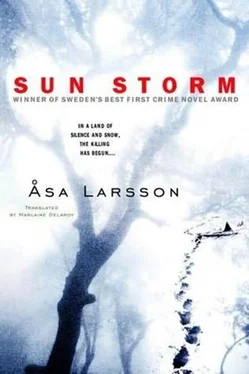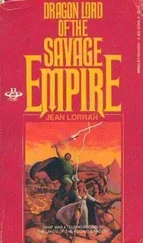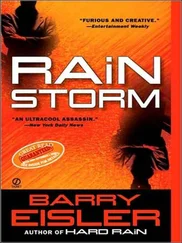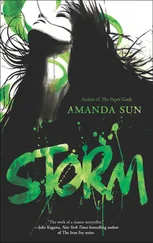She put her foot down and drove down toward the river. The darkness closed behind her like a curtain. And the wind immediately covered their tracks with snow.
Curt Bäckström is standing like a shadow in her grandmother’s kitchen. He leans against the wall by the window and watches the headlights disappearing down toward the river. In his right hand he is holding a knife. He runs his forefinger cautiously along the blade to feel its sharpness. In one pocket of his snowsuit lie three black plastic sacks. In the other is the house key that he took out of Rebecka’s coat pocket. He has been standing here in the darkness for a long time, waiting. Now he allows his eyes to close for a little while. It feels good. His eyes are dry and burning.
The fox has her lair and the birds of the air have their nests, but the Son of Man has no place to rest his head.
Anna-Maria Mella was driving along Österleden down toward Lombolo. It was quarter past ten at night. She was driving too fast. With a reflex action, Sven-Erik grabbed at the top of the glove compartment as the car skidded over the fresh snow on the road. His hand in its thick glove found nothing to hang on to.
The Obs department store on the right, a few pinpricks of light behind the curtain of snow. Stop at the roundabout, wheels spinning as she put her foot down. On the left the Space House, like a stranded silver alien spaceship. The signs glowing red. The residential area-Stenvägen, Klippvägen, Blockvägen, with their tenaciously cleared driveways and their well-stocked bird tables.
“His name is Curt Bäckström,” said Anna-Maria. “Convicted of murder twelve years ago, then sent to a secure psychiatric unit, as they used to call it. No notes since then.”
“Right. So tell me about the murder.”
“He stabbed his stepfather. Several times. His mother was watching and testified against her son. In the witness box she admitted she was scared of the boy.”
“Boy?”
“He was only nineteen. And he’s not here as a visitor at the conference. He lives here, down in Lompis. Tallplan 5B. Somebody down at the station in Gävle knew somebody in the court office. She went there after work and faxed everything over to me. Some people are easy to deal with.”
She pulled into the car park. Long rows of garages. Two-story wooden apartment blocks built in the late sixties. They got out of the car and started walking. Not a soul in sight, despite the fact that it was Friday night.
“The county court discharged him two years ago,” Anna-Maria went on. “He was still in contact with a community care unit in Gävle. Had regular shots, held down a job. But according to the records he moved to Kiruna in January last year. And according to the duty doctor at the psychiatric unit in Gällivare, he hasn’t had any contact with community care in Kiruna.”
“So…”
“So I don’t know, but presumably he hasn’t had the medication he needs for a year. And is that so odd? I mean, you’ve seen those tapes from the church. ‘Throw away your pills! God is your doctor!’ ”
They stood for a while outside the door. Two of the apartments were in darkness. Sven-Erik had his hand on the door handle. Anna-Maria lowered her voice.
“I asked the duty doctor what he thought might happen to a person who stopped their injections.”
“And…”
“And you know what they’re like… can’t comment on this particular case… varies from one individual to another… but in the end he admitted that it was perhaps possibly likely that he might get worse. Bad, even. Do you know what he said when I told him there was a church that thought people should throw away all their medication?”
Sven-Erik shook his head.
“He said: ‘Weak people are often drawn to the church. And people who want power over weak people are also drawn there.’ ”
They stood in silence for a few seconds. Anna-Maria watched as the wind filled their footprints on the porch with snow.
“Shall we go in, then?” she said.
Sven-Erik opened the door and they went into the dark stairwell. Anna-Maria switched on the light. A small plaque on the right showed that Bäckström lived on the next floor. They went up the stairs. They had both been to these apartments on many occasions in the past, when the neighbors had phoned to complain about some disturbance. There was the same smell as there always was in these places. Piss under the stairs. The acrid smell of cleaning fluid. Concrete.
They rang the bell, but no one answered. Listened at the door, but the only sound was music from the apartment opposite. There had been no light in the window. Anna-Maria opened the letter box and tried to look in. The flat was in darkness.
“We’ll have to come back,” she said.
And evening came and morning came, the sixth day
It is twenty past four in the morning. Rebecka is sitting at the small kitchen table in the cabin in Jiekajärvi. She looks toward the window and looks straight into her own great big eyes. Anybody could be standing right outside and looking in at her, and she wouldn’t be able to see them. That person would suddenly press his face against the glass and the image of his face would melt into the reflection of her own.
Stop it, she says to herself. There’s nothing out there. Who’d go out in the dark in a storm like this?
The fire is crackling in the stove and the draught in the chimney makes a long, lonely sound that is accompanied by the howling wind outside and the soft hissing of the kerosene gas lamp. She gets up and pushes in two more logs. When there’s a storm like this it’s important to keep the fire going. Otherwise the cabin will be chilled through by tomorrow morning.
The strong wind finds its way through gaps in the walls and between the door frame and the old ocher yellow mirrored door. Once upon a time, before Rebecka was born, it had been the door of the pigsty. Her grandmother had told her that. And before that it had been somewhere else. It is much too beautiful and too solid a door to have been made for the pigsty. Presumably it used to be in a house somewhere that had been pulled down. And somebody had decided to find a home for the door.
On the floor there are several layers of Grandmother’s rag rugs. They insulate the house and keep the cold out. The snow that has been blown up against the walls insulates too. And the north-facing wall has a little extra protection from the stack of wood that has been covered with a tarpaulin to keep the snow off.
Next to the stove is the enamel water bucket with the ladle made of stainless steel, and a big basket of wood. Right beside it are Sara and Lova’s painted cat stones on top of a pile of old magazines. Although of course Lova’s stone represents a dog. It is curled up with its muzzle between its paws, gazing at Rebecka all the time. Just to be on the safe side Lova has written “Virku” on its painted black back. Both the girls are fast asleep in the same bed now, their fingers spattered with paint and a double layer of blankets right up to their ears. Before they went to bed all three of them worked together, rolling up the mattresses to press all the cold air out of them. Sara is sleeping with her mouth open, and Lova is curled up in the curve of her big sister’s arm. Their cheeks are rosy. Rebecka takes off one blanket and puts it up on the shelf.
It’s not my job to protect them, she tells herself. After tomorrow there will be nothing more I can do for them.
Anna-Maria sits up in bed with the bedside lamp lit. Robert is sleeping beside her. She has two pillows behind her back, and is leaning against the headboard. On her knee she has Kristina Strandgård’s album of newspaper cuttings and pictures of Viktor Strandgård. The child moves in her stomach. She can feel a foot pressing against her.
Читать дальше












